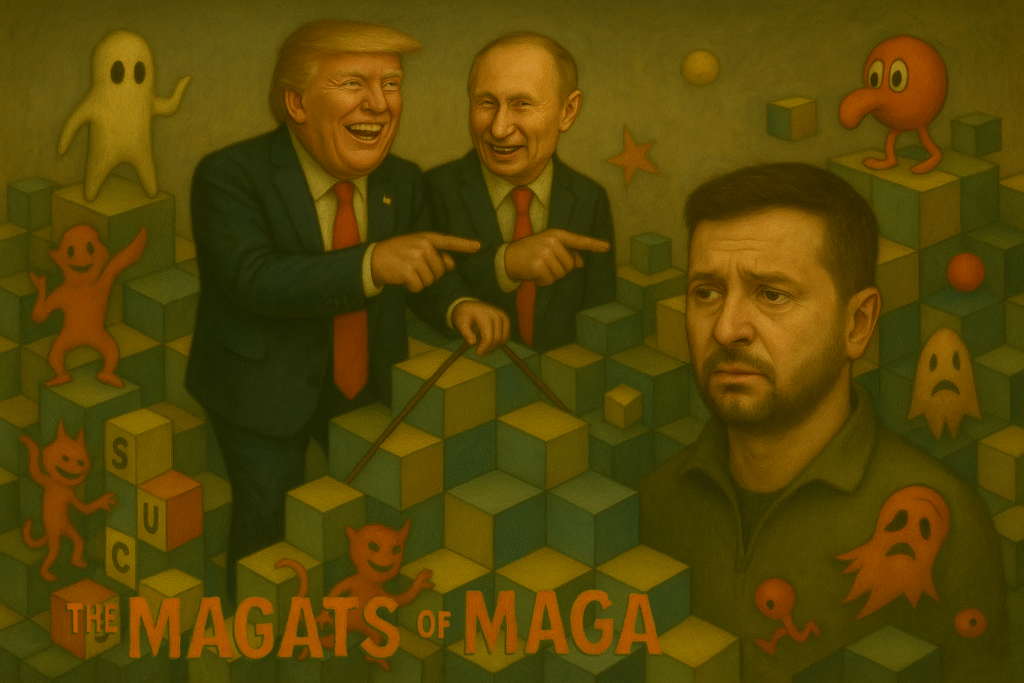
On the heels of failed peace negotiations between Ukraine and Russia in Istanbul, U.S. President Donald Trump announced he will speak directly with Russian President Vladimir Putin in an urgent and “high-stakes” phone call on Monday morning. Writing on Truth Social, Trump stated the conversation will take place at 10:00 EDT (14:00 GMT), followed by subsequent calls with Ukrainian President Volodymyr Zelenskyy and several NATO leaders. Trump emphasized the need to “stop the bloodbath” and “end this very violent war,” which he described as one that “never should have happened.”
The direct call comes amid escalating violence in Ukraine, including a Russian drone strike that hit a civilian bus in Sumy, killing nine and sparking renewed outrage from Kyiv. Ukrainian officials called the attack a “deliberate massacre of innocents,” while President Zelenskyy demanded increased sanctions against Moscow. Despite Kremlin claims that the target was a military site, no evidence was provided.
This anticipated phone call is being billed as a potential breakthrough, though many remain skeptical given Putin’s hardline stance. Over the weekend, Putin reiterated that any peace deal must “eliminate the causes” of the war and include “security guarantees” for Russia—demands Ukraine deems absurd, particularly as they involve ceding sovereign territory.
European leaders, meanwhile, have continued urging both parties to commit to an immediate 30-day ceasefire. Ukraine agreed to the temporary halt in hostilities during talks in Istanbul, but Russia has resisted, instead offering vague signals of “readiness to continue contact.”
Trump, emboldened by the role of dealmaker, has positioned himself as the indispensable broker in the three-year-old war. “Hopefully it will be a productive day,” he posted. “A ceasefire will take place, and this catastrophic war will end.” Trump has previously asserted that a real resolution can only come through personal diplomacy between him and Putin. “Nothing’s going to happen until we meet,” he said. “Too many people are dying.”
Yet critics argue Trump’s involvement is more performance than peacemaking. His offer to attend the Istanbul talks was contingent on Putin also showing up—an offer that was declined by the Russian leader. Kremlin spokesman Dmitry Peskov confirmed that preparations for Monday’s call are “in the works,” but gave no details on the format or scope of discussion.
Despite Trump’s optimism, previous calls between him and Putin have yielded little beyond public theater and vague platitudes. Moscow’s pace remains sluggish, and Ukrainian officials have described Russia’s demands as not just impractical but intentionally provocative—intended to derail negotiations rather than progress them.
The symbolic value of Monday’s call is high, but the practical stakes are even higher. Russia’s invasion of Ukraine, which began in February 2022 following the illegal annexation of Crimea in 2014, has left hundreds of thousands dead, millions displaced, and much of Ukraine’s infrastructure in ruin. With battlefield brutality escalating and political pressure mounting globally, a meaningful ceasefire feels urgent—but elusive.
In addition to the phone calls, Trump’s Secretary of State Marco Rubio held a separate discussion with Russian Foreign Minister Sergei Lavrov over the weekend, reiterating American support for a mediated ceasefire. However, the credibility of U.S. mediation is increasingly entangled in domestic political theater, where Trump’s ambitions often seem to eclipse the suffering on the ground.
Ukraine’s military reported that on Sunday alone, Russia launched over 270 drones, including 273 Shahed and imitator models. While Ukrainian defenses intercepted most, one woman was killed in Kyiv, underscoring the daily toll of the conflict.